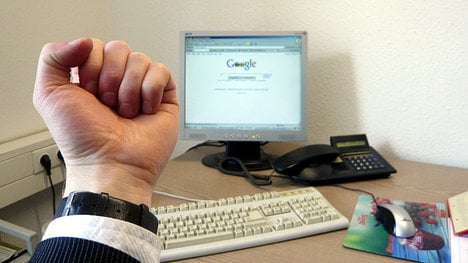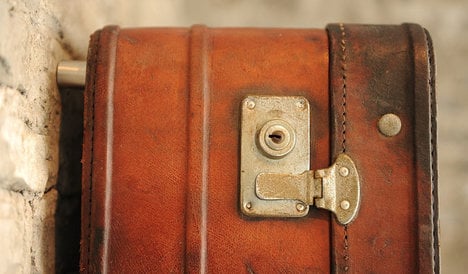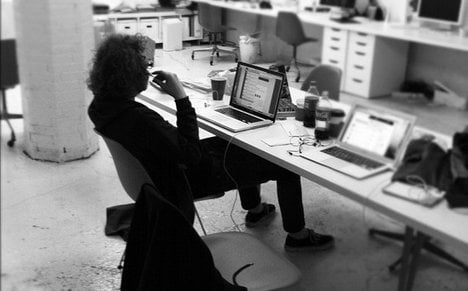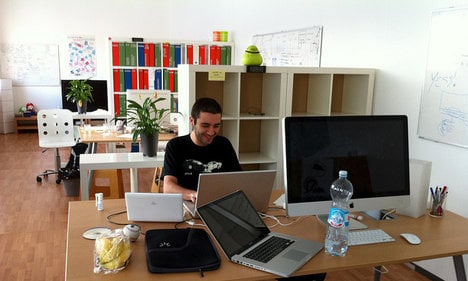“Err…no thanks, I grabbed my coffee on the way to work.”

Photo: Byronv2/Flickr
Refusing a coffee break? Foolish error, my friend. While in the US and UK it's perfectly normal to buy a large filter 'coffee to go' in order to keep your heavy eyelids open during the commute, it is not the done thing in Italy.
Most people will start the day with a coffee, for sure, but then go for another one not long after arriving at work. And then another…
It's not laziness: your pause caffè (coffee breaks) are the perfect opportunity to chat with your boss or colleagues and help build relationships, foster understanding and establish goals and deadlines.
If you don't like coffee, have tea. Have a biscuit or a cornetto (pastry) too – nobody's judging. Just don't miss the coffee break – it's an important part of the day.
So important, in fact, that depending on the daily workload, you might find yourself going for another mid-afternoon coffee to help you power through…
'That e-mail was sent outside working hours so I didn't read it.'

Photo:Korsten Kellotat/Flickr
Where do you think you are? France?
While in some countries laws dictate that no emails can be sent outside office hours – and many companies worldwide have made it their policy – in Italy it's still largely the norm.
Expect to receive e-mails around-the-clock and be ready to respond to them if necessary.
Obviously nobody can force you to do it, but it will be appreciated and helps to show your boss that your witty anecdotes told during the pausa caffè are accompanied by a willingness to go above and beyond the call of duty.
“I'm taking a month off in October.”

Photo: Jonas Merian/Flickr
Good luck.
Italians do have allocated holiday time but they generally save it for July or August, when everyone disappears to the seaside, into the mountains, or both, for a month of good living.
This, rather sensibly, brings offices to a standstill during the hottest period of the year, and when the country is at its most beautiful.
You will be expected to do the same. But then again, there are much worse fates that could befall you.
'Wine at lunch? Are you joking?'

Photo: Chris Sloan/Flickr
And herein lies the wonderful nature of work in Italy. Yes, you may work a minimum 45-hour week and receive e-mails at every hour, but it's important to make time to enjoy the finer things in life, such as enjoying a glass of wine at lunch.
Lunch breaks in Italy can last up to an hour and a half and it's perfectly normal to head down to the nearest pizzeria or trattoria with a group of colleagues and have a civilized and informal lunch…enjoy it!
But don't overdo it on the wine and carbs, or you may find yourself having an involuntary siesta at your desk in the afternoon.
“I'm sick, but I'll come to work and power through.”

Photo: Creative commons
If you're sick don't even think about going to the office. It's not like in the US or UK, where there's a feeling that the boss doesn't believe you if you call in sick. It's perfectly fine to be ill in Italy, and you don't need to feel guilty about it.
If you go into work, your boss won't thank you for it and neither will your colleagues: Italy is a highly germophobic country and they don't want your virus.
“…”

Photo: Simon Collison/flickr
Generally speaking, Italians are a gregarious bunch and their offices are lively places: you are expected to join in the banter.
If you're the shy, serious type who likes to come into the office, open their computer and quietly get on with work, you will probably be considered quite strange.
At a minimum, wish all your colleagues a good morning and ask them how they're doing, how their significant others are doing, how their mothers are doing, what they had for dinner…
Start the day with a smile and continue as you mean to go on. Italians say “il buon giorno si vede dal mattino,” which generally means “a good beginning bodes well”.
'I need to get what? Italy is such a mess!”

Photo: Theerin/Flickr
Yes, Italians frequently bemoan their country's complex bureaucratic structure, but as a foreign worker, criticizing Italy is just poor form.
Essentially, you don't know the half of it. But your boss does – after all, they have been dealing with it for years – and went through it enable them to hire you.
Instead of complaining, which will make you look like an upstart, try to understand what's holding you back, what needs to done and how you can resolve the problem.





 Please whitelist us to continue reading.
Please whitelist us to continue reading.
Member comments